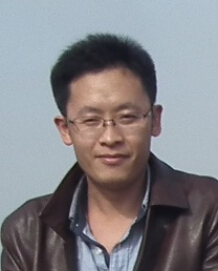 Biograph: Wen-Qin Wang received the B.E. degree in electrical engineering from Shandong University, Shandong, China, in 2002, and the M.E. and Ph.D. degrees in information and communication engineering from the University of Electronic Science and Technology of China (UESTC), Chengdu, China, in 2005 and 2010, respectively. From 2005 to 2007, he was with the National Key Laboratory of Microwave Imaging Technology, Chinese Academy of Sciences, Beijing, China. Since 2007, he has been with the School of Communication and Information Engineering, UESTC, where he is currently a Professor. From 2011 to 2012, he was a Visiting Scholar at the Stevens Institute ofTechnology, NJ, USA. From 2012 to 2013, he was a Hong Kong Scholar with the City University of Hong Kong, Hong Kong. From 2014 to 2016, he wasa Marie Curie Fellow with the Imperial College London, U.K. His research interests span the area of array signal processing and its applications in radar, communication and electronic warfare. He has authored over 250 papers and two books. He is an editorial board member of four international journals. He was a recipient of the Marie Curie Fellowship, the National Young Top-Notch Talent of the Ten-Thousand Talent Program Award, and the Hong Kong Scholar Fellowship.
Biograph: Wen-Qin Wang received the B.E. degree in electrical engineering from Shandong University, Shandong, China, in 2002, and the M.E. and Ph.D. degrees in information and communication engineering from the University of Electronic Science and Technology of China (UESTC), Chengdu, China, in 2005 and 2010, respectively. From 2005 to 2007, he was with the National Key Laboratory of Microwave Imaging Technology, Chinese Academy of Sciences, Beijing, China. Since 2007, he has been with the School of Communication and Information Engineering, UESTC, where he is currently a Professor. From 2011 to 2012, he was a Visiting Scholar at the Stevens Institute ofTechnology, NJ, USA. From 2012 to 2013, he was a Hong Kong Scholar with the City University of Hong Kong, Hong Kong. From 2014 to 2016, he wasa Marie Curie Fellow with the Imperial College London, U.K. His research interests span the area of array signal processing and its applications in radar, communication and electronic warfare. He has authored over 250 papers and two books. He is an editorial board member of four international journals. He was a recipient of the Marie Curie Fellowship, the National Young Top-Notch Talent of the Ten-Thousand Talent Program Award, and the Hong Kong Scholar Fellowship.
Title: Frequency Diverse Array Time Variance and Its Potential Applications
Abstract: Frequency diverse array (FDA) has received much attention and increasing publications due to its promising advantages while compared with classic phased-array. However, time variance is unpractically ignored in many publications. This presentation will discuss FDA time variance and its potentials in radar, communication, and electronic warfare applications. The corresponding application comparisons to phased-array will be compared. Criterions to define the efficiency or usefulness of FDA applications from cost-effective and performance point of view also will be discussed. Finally, the technical challenges and possible future investigations will be given.